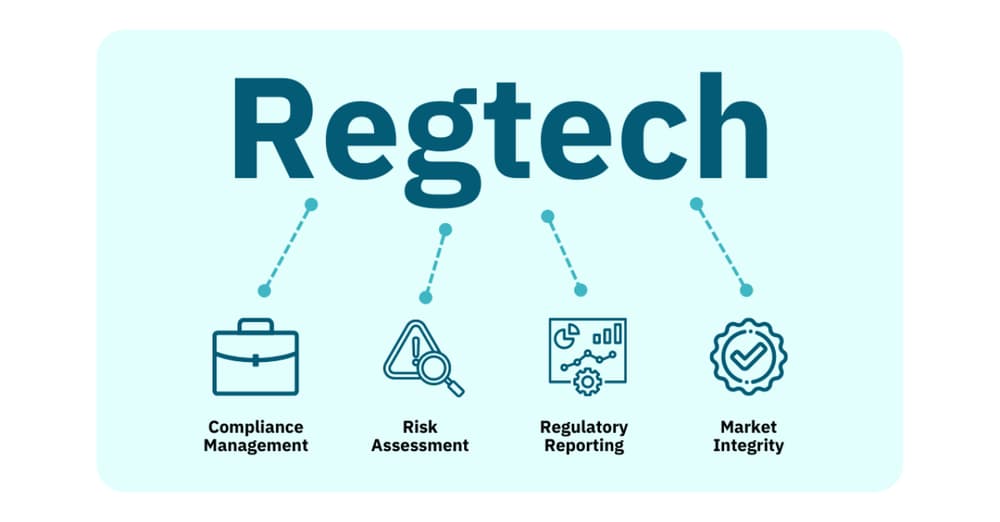RegTech, or Regulatory Technology, is transforming how financial institutions manage compliance by automating tasks like fraud detection, KYC, AML monitoring, and regulatory reporting.
RegTech: The Tech Solution to Compliance in a Complex Financial World
Written by Sumit Kaushik

In the hyper-regulated, digitally networked financial world of today, compliance is no longer a checkbox exercise—it's a mission-critical initiative. As volumes of data increase, threats increase, and regulations keep changing in a never-ending cycle, financial institutions are being increasingly forced to be transparent, secure, and compliant.
That's where RegTech—short for Regulatory Technology—comes into play—the rapidly growing sub-segment of fintech that aims to simplify compliance, fraud shrink, and security strengthen using innovative technology.
As governments worldwide crank up the pressure on regulation and the cost of non-compliance increases, RegTech is becoming the unsung hero of policing the finance system. But what is RegTech, and how is it revolutionizing the future of finance?
What Is RegTech?
RegTech involves the application of new technologies like AI, machine learning, blockchain, and cloud computing to support financial institutions in becoming efficient and effective in ensuring compliance with regulation. It makes sense of traditionally resource- and labor-intensive compliance processes to enable firms to:
- Track transactions in real time
- Identify suspicious behavior and possible fraud
- Issue accurate documentation and reporting
- Remain current with evolving global regulations
- Mitigate the risk of human errors and expensive penalties
Unlike traditional compliance solutions, which tend to be static and silo-based, RegTech provides data-driven, dynamic, and real-time responses to navigating the sophisticated regulatory landscape of today.
Why RegTech Is Catching Up
1. Explosion of Financial Regulations
Regulation has increased in quantity and complexity since the 2008 financial crisis. From MiFID II and GDPR in the EU to Dodd-Frank and BSA/AML in the US, financial institutions are under cross-border compliance with often disastrous repercussions for non-compliance. RegTech provides real-time information and automated reporting, ensuring institutions remain compliant at all times.
2. The Cost of Compliance
Legacy compliance models are costly and time-consuming. Banks utilize billions of dollars in compliance activity, legal personnel, and manual reviews. RegTech solutions minimize these costs greatly by automating compliance processes and minimizing the utilization of human capital.
3. Combat Financial Crime and Fraud
RegTech lies at the heart of fraud detection, AML tracking, and KYC activities. AI-enabled systems are capable of scanning large amounts of data and identifying anomalies, picking up on suspicious transactions, and identifying patterns of fraud far faster and more accurately than human analysts.
Key Applications of RegTech
KYC and Identity Verification
RegTech facilitates faster onboarding with biometric verification, e-signatures, and machine-based document analysis, decreasing KYC duration, enhancing security, and lowering error rates.
- AML Monitoring
Machine learning models monitor real-time transaction data to identify suspicious trends and signal institutions of possible laundering transactions early enough before they turn into a problem.
✅ Regulatory Reporting
Regulatory reporting may be effected automatically by systems that have the capacity to aggregate, verify, and file reports to the regulator to provide timely, consistent, and accurate disclosures.
✅ Risk Management
RegTech technologies apply predictive analytics to detect operational, financial, and reputational risks so that institutions can avert problems before they turn into crises.
☑️ Cybersecurity and Data Protection
Due to the stringent data privacy regulations, RegTech assists financial institutions in tracking access controls, data breaches, and compliance with data regulation such as GDPR and CCPA.
Benefits of RegTech for Financial Institutions
- Faster compliance process
- Reduced operational expenses
- Enhanced accuracy and auditability
- Enhanced fraud detection and prevention
- More flexibility to regulatory change
- Enhanced customer trust and transparency
RegTech Startups to Watch and Innovators
A few startups and solutions are at the forefront of leading the RegTech revolution, some of which include:
- ComplyAdvantage – Anti-money laundering screening and transactional monitoring
- Trulioo – Identity verification anywhere
- Acuant – Digitally identifying identity and fraud
- Elliptic – Blockchain transaction risk management and monitoring
- ClauseMatch – Policy document and regulatory compliance management
The Road Ahead: RegTech as a Strategic Asset
No "nice-to-have," RegTech is increasingly becoming a strategic imperative for financial institutions in an increasingly complex and responsible age. As regulators themselves start to go digital, the convergence of governance with technology and self-funding compliance will define the backbone of financial ecosystem operations.
In the long run, RegTech can turn into a driver of competitive advantage, not an aid to compliance, with trust, security, and agility being success metrics.
Conclusion
In an endless money world—and hardly slowing down—RegTech is turning into the digital backbone of compliance. Through automated regulation, threat detection in real time, and realignment to evolving rules, RegTech helps financial institutions to survive, yes, but flourish in an age of complexity.
As the future becomes reality, one thing is for sure: compliance will no longer be manual—it'll be smart, automated, and embedded in every financial transaction.